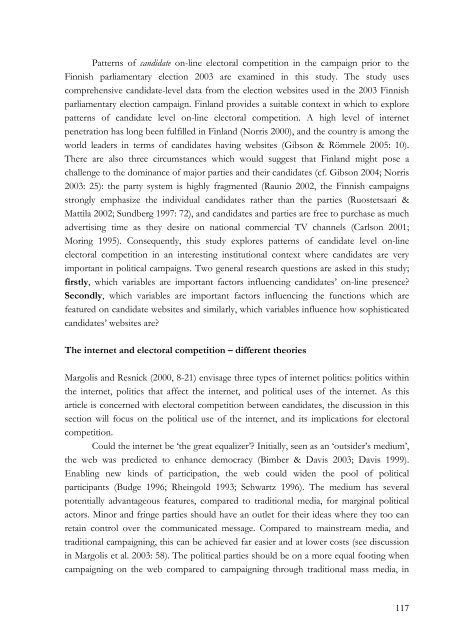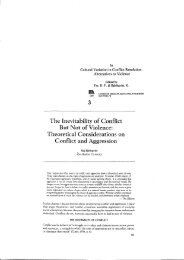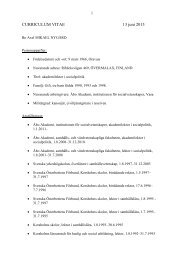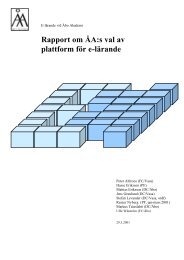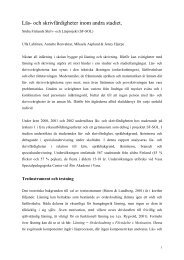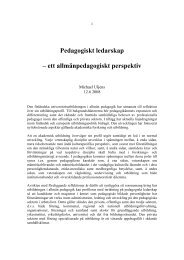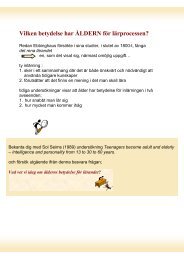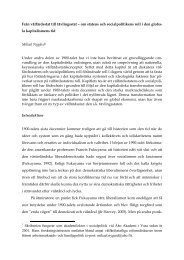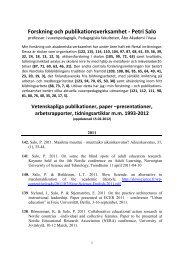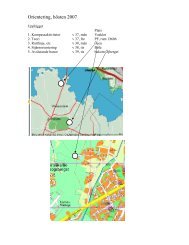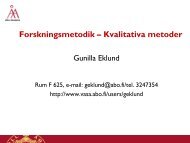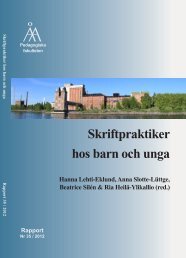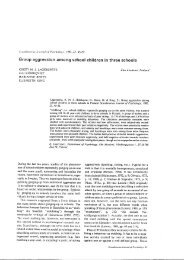Parties, Candidates and Citizens On-Line - Åbo Akademi
Parties, Candidates and Citizens On-Line - Åbo Akademi
Parties, Candidates and Citizens On-Line - Åbo Akademi
You also want an ePaper? Increase the reach of your titles
YUMPU automatically turns print PDFs into web optimized ePapers that Google loves.
Patterns of c<strong>and</strong>idate on-line electoral competition in the campaign prior to the<br />
Finnish parliamentary election 2003 are examined in this study. The study uses<br />
comprehensive c<strong>and</strong>idate-level data from the election websites used in the 2003 Finnish<br />
parliamentary election campaign. Finl<strong>and</strong> provides a suitable context in which to explore<br />
patterns of c<strong>and</strong>idate level on-line electoral competition. A high level of internet<br />
penetration has long been fulfilled in Finl<strong>and</strong> (Norris 2000), <strong>and</strong> the country is among the<br />
world leaders in terms of c<strong>and</strong>idates having websites (Gibson & Römmele 2005: 10).<br />
There are also three circumstances which would suggest that Finl<strong>and</strong> might pose a<br />
challenge to the dominance of major parties <strong>and</strong> their c<strong>and</strong>idates (cf. Gibson 2004; Norris<br />
2003: 25): the party system is highly fragmented (Raunio 2002, the Finnish campaigns<br />
strongly emphasize the individual c<strong>and</strong>idates rather than the parties (Ruostetsaari &<br />
Mattila 2002; Sundberg 1997: 72), <strong>and</strong> c<strong>and</strong>idates <strong>and</strong> parties are free to purchase as much<br />
advertising time as they desire on national commercial TV channels (Carlson 2001;<br />
Moring 1995). Consequently, this study explores patterns of c<strong>and</strong>idate level on-line<br />
electoral competition in an interesting institutional context where c<strong>and</strong>idates are very<br />
important in political campaigns. Two general research questions are asked in this study;<br />
firstly, which variables are important factors influencing c<strong>and</strong>idates’ on-line presence?<br />
Secondly, which variables are important factors influencing the functions which are<br />
featured on c<strong>and</strong>idate websites <strong>and</strong> similarly, which variables influence how sophisticated<br />
c<strong>and</strong>idates’ websites are?<br />
The internet <strong>and</strong> electoral competition – different theories<br />
Margolis <strong>and</strong> Resnick (2000, 8-21) envisage three types of internet politics: politics within<br />
the internet, politics that affect the internet, <strong>and</strong> political uses of the internet. As this<br />
article is concerned with electoral competition between c<strong>and</strong>idates, the discussion in this<br />
section will focus on the political use of the internet, <strong>and</strong> its implications for electoral<br />
competition.<br />
Could the internet be ‘the great equalizer’? Initially, seen as an ‘outsider’s medium’,<br />
the web was predicted to enhance democracy (Bimber & Davis 2003; Davis 1999).<br />
Enabling new kinds of participation, the web could widen the pool of political<br />
participants (Budge 1996; Rheingold 1993; Schwartz 1996). The medium has several<br />
potentially advantageous features, compared to traditional media, for marginal political<br />
actors. Minor <strong>and</strong> fringe parties should have an outlet for their ideas where they too can<br />
retain control over the communicated message. Compared to mainstream media, <strong>and</strong><br />
traditional campaigning, this can be achieved far easier <strong>and</strong> at lower costs (see discussion<br />
in Margolis et al. 2003: 58). The political parties should be on a more equal footing when<br />
campaigning on the web compared to campaigning through traditional mass media, in<br />
117


